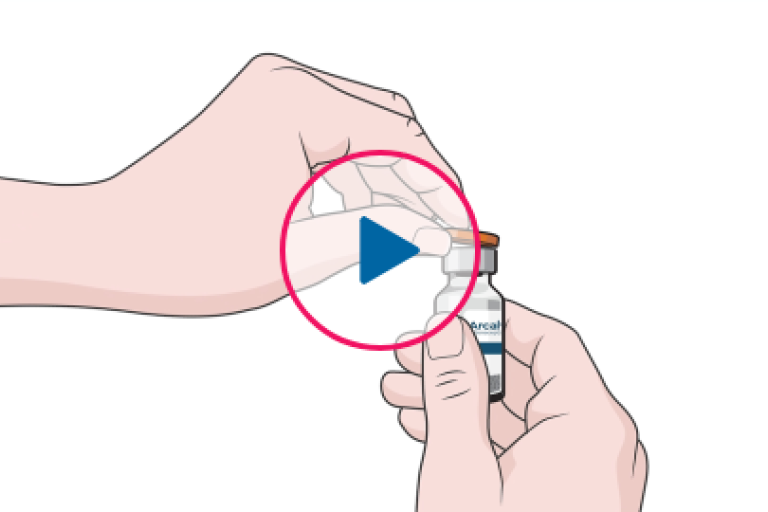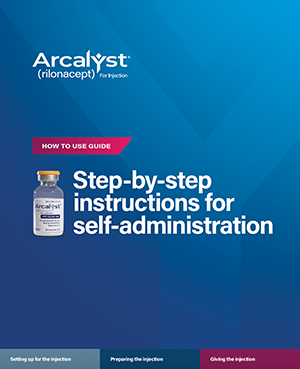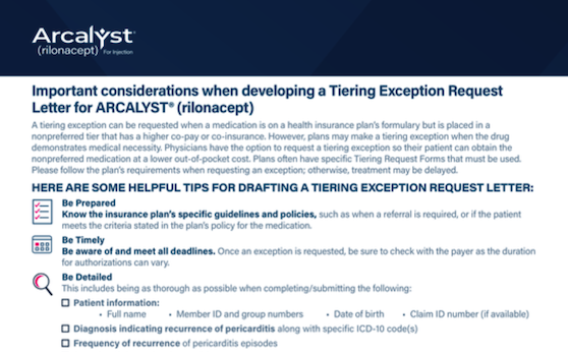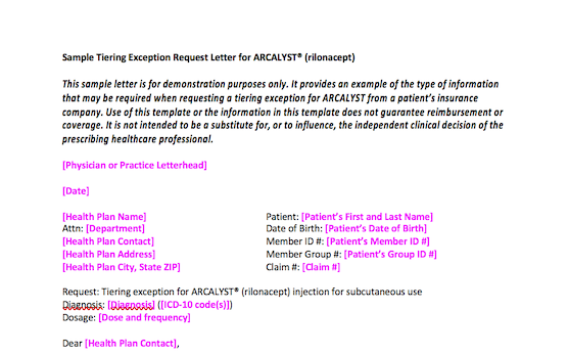WHAT IS DIRA
DIRA is an autoinflammatory disease first reported in 2009 that is characterized by the absence of functional interleukin-1 receptor antagonist (IL-1Ra) protein.1,2 Patients with DIRA have life-threatening systemic inflammation with skin and bone involvement.1 DIRA is a genetic disorder inherited in an autosomal recessive manner, meaning that a mutation in both copies of a gene is needed to cause the disease.2,3
DIRA is a very rare disease with fewer than 50 patients worldwide.4 Cases have been identified in families originating in Puerto Rico, Newfoundland (Canada), The Netherlands, Palestine/Lebanon, Germany, Turkey, India, and Brazil.2,5,6 In Puerto Rico, the incidence of DIRA in some regions may be as high as 1 in 6300 births.1 Although difficult to estimate, mortality is approximately 30% in early infancy.4
DIRA is characterized by a neonatal onset, with patients presenting at birth or in the first days of life with prominent skin and bone manifestations.1,2,5 Generalized skin pustulosis, joint swelling, and painful osteolytic lesions are some of the more distinctive clinical features of the disease.2
Children with DIRA experience intense chronic pain.7 This pain may lead to feeding challenges and subsequent growth delays.7 If left untreated, DIRA can escalate to life-threatening inflammation, with the development of systemic inflammatory response syndrome (SIRS), multiorgan failure, and death in early childhood.4,5
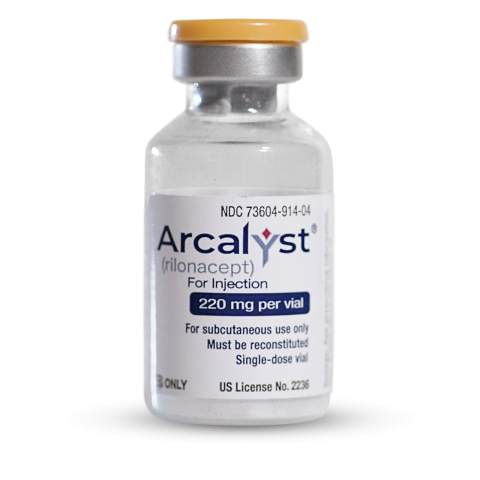
ARCALYST is indicated for the maintenance of remission of DIRA in adults and pediatric patients weighing at least 10 kg.8
DOSING AND ADMINISTRATION
ARCALYST is a patient-administered once-weekly subcutaneous therapy.8
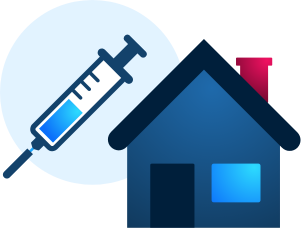
Adults
(18 years and older)
320 mg
injection given once weekly as 2 subcutaneous injections, administered:
- On the same day
- At 2 different sites
- With a maximum single-injection volume of 3 mL
Pediatric Patients
(weighing at least 10 kg)
4.4 mg/kg
up to maximum at 320 mg administered once-weekly as 1-2 subcutaneous injections. If the dose is given as 2 injections, it should be administered:
- On the same day
- At 2 different sites
- With a maximum single-injection volume of 3 mL
STEP BY STEP ADMINISTRATION
ARCALYST reconstitution and injection follow a step-by-step process.8

ARCALYST is supplied in sterile, single-use, 20-mL glass vials.8
- Each vial contains 220 mg rilonacept, a sterile, white to off-white, preservative-free, lyophilized powder
- Reconstitution with 2.3 mL of Sterile Water for Injection is required prior to subcutaneous administration of the drug
- The reconstituted ARCALYST is a viscous, clear, colorless to pale yellow, free from particulates, 80-mg/mL solution
- Ensure your patient’s vaccination history is up to date, including their pneumonia and flu vaccines.
- The Enrollment Form will be provided by your Kiniksa Sales Specialist or is available for download below.
- Fax completed Enrollment Form to Kiniksa OneConnect at (781) 609-7826.
- Your patient will be contacted by Kiniksa OneConnect to help arrange delivery from select specialty pharmacies.
- Kiniksa OneConnect will work with your patients to set up one-on-one injection training sessions with either virtual support from an ARCALYST Clinical Educator or a combination of virtual/in-person training support that includes virtual support from an ARCALYST Clinical Educator and in-person support from a healthcare professional.
Kiniksa OneConnect can help your patients with their treatment needs.
TREATMENT RESOURCES
There may be several steps to obtaining approval for your patient’s treatment with ARCALYST. The downloadable resources below were developed to help simplify this process by providing information about gaining access to ARCALYST, understanding reimbursement claims, and working with a specialty pharmacy.
Access
The following downloadable resources can help guide you through the steps to product access.
Financial Assistance
Resources for information about access to ARCALYST and navigating the reimbursement process.
KINIKSA ONECONNECT™
Kiniksa OneConnect™ is a support program made up of a team of experienced individuals, known as Patient Access Leads, with knowledge of insurance plans and healthcare networks.
Patient Access Leads
Once enrolled in Kiniksa OneConnect™, your patient will be paired with a dedicated Patient Access Lead who will work to provide personalized one-on-one support throughout your patient's entire treatment experience.
ARCALYST Clinical Educators
ARCALYST Clinical Educators can conduct sessions to help provide your patients with training on the injection process.
Beginning treatment
By helping to navigate your patients through their insurance coverage and partnering with your practice, we make getting your patient on treatment a seamless experience in a variety of ways:
- We coordinate, verify, and explain the benefits verification process
- We assist with the prior authorization and appeals processes if required
- When it's time for your patients to begin treatment, we help coordinate delivery of your patient’s therapy



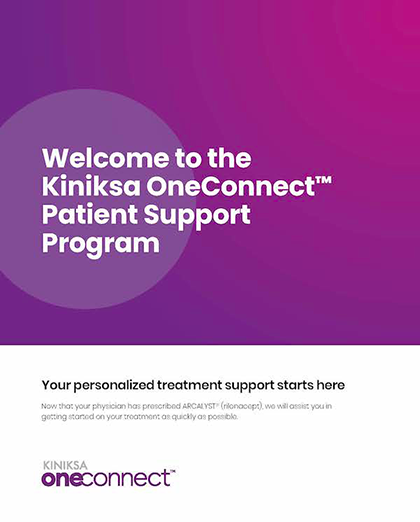
Help your patients learn more about our services.
References: 1. Aksentijevich I, Masters SL, Ferguson PJ, et al. An autoinflammatory disease with deficiency of the interleukin-1 receptor antagonist. N Engl J Med. 2009;360(23):2426-2437. 2. Lachmann HJ. Periodic fever syndromes. Best Pract Res Clin Rheumatol. 2017;31(4):596-609. 3. Autosomal dominant inheritance. National Cancer Institute Dictionary of Genetics Terms. Accessed February 23, 2021. https://www.cancer.gov/publications/dictionaries/genetics-dictionary/def/autosomal-dominant-inheritanc 4. Garg M, de Jesus AA, Chapelle D, et al. Rilonacept maintains long-term inflammatory remission in patients with deficiency of the IL-1 receptor antagonist. JCI Insight. 2017;2(16):e94838. 5. Dyall-Smith D. Deficiency of the interleukin-1 receptor antagonist. DermNet NZ. https://dermnetnz.org/topics/deficiency-of-the-interleukin-1-receptor-antagonist-dira/ 6. Gómez-García F, Sanz-Cabanillas JL, Viguera-Guerra I, Isla-Tejera B, Vélez-García Nieto AV, Ruano J. Scoping review on use of drugs targeting interleukin 1 pathway in DIRA and DITRA. Dermatol Ther (Heidelb). 2018;8(4):539-556. 7. Deficiency of IL-1 receptor antagonist (IL-1RA) known as DIRA. Autoinflammatory Alliance. Accessed February 23, 2021. http://autoinflammatory.org/dira.php 8. ARCALYST. Package insert. Kiniksa Pharmaceuticals.

